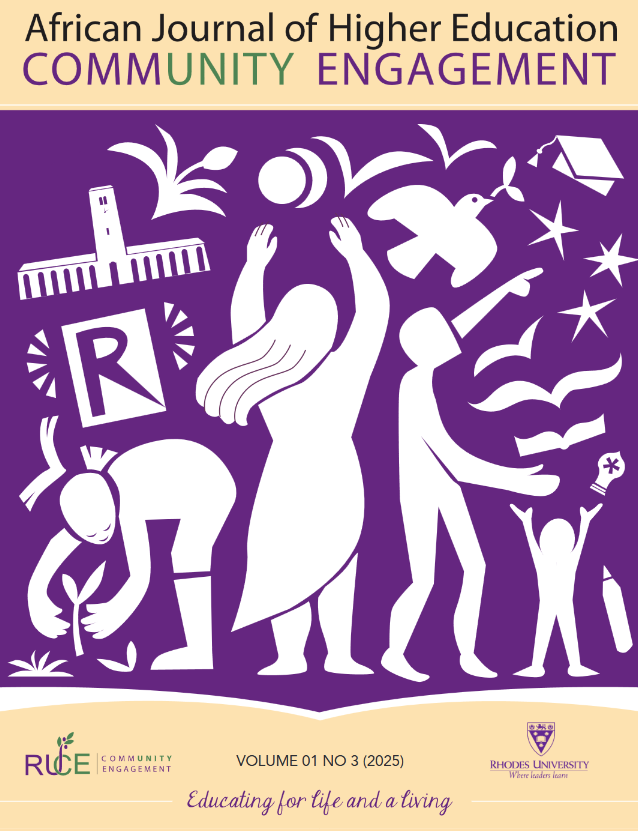Liberatory classrooms
Reimagining teaching, learning and research through community engagement
DOI:
https://doi.org/10.21504/ajhece.v1i3.2538Keywords:
pedagogy, liberation, community engagement, teaching, learningReferences
Ashby, E. (1964). African Universities and Western Tradition. Harvard University Press.
Biko, S. (1987). I Write What I Like. Heinemann.
Fanon, F. (1963). The Wretched of the Earth (C. Farrington, Trans.). Grove Weidenfeld.
Freire, P. (1972). Pedagogy of the Oppressed. Penguin Education.
Gibson, N. (2011). Fanonian Practices in South Africa: From Steve Biko to Abahlali baseMjondolo. University of Kwa-Zulu Natal Press.
hooks, b. (1994). Teaching to transgress: Education and the practice of freedom. Routledge.
Hull, G. (2017). Black consciousness as overcoming hermeneutical injustice. Journal of Applied Philosophy 34(4), 573–592. https://doi.org/10.1111/japp.12201
Mitchell, T.D. (2008). Traditional vs. critical service-learning: Engaging the literature to differentiate two models. Michigan Journal of Community Service Learning 14(2), 50–65.
Nyerere, J. K. (1976). Education and Liberation. Africa Development/Afrique et Développement 1(3), 5–12.
Sen, A. (1999). Development as Freedom. Oxford University Press.
Toffler, A. (1970). Future Shock. Bantam Books.
wa Thiong’o, N. (1986). Decolonising the mind: The politics of language in African literature. James Currey.
wa Thiong’o, N. (2012). Globalectics: Theory and the Politics of Knowing. Columbia University Press.
wa Thiong’o, N. (2013). In the Name of the Mother: Reflections on Writers and Empire. James Currey.
Downloads
Published
Issue
Section
License
Copyright (c) 2025 Margie Maistry, Claire McCann

This work is licensed under a Creative Commons Attribution 4.0 International License.





